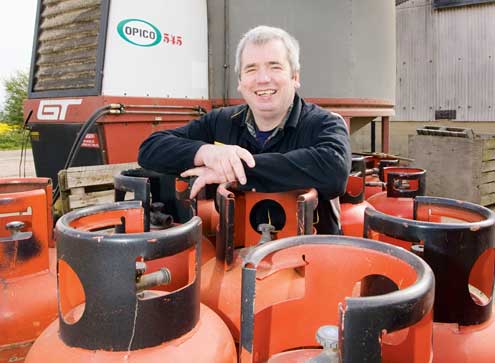Some irrigation savings for Philip Bradshaw

It is interesting walking the farm this summer. The sugar beet has recovered well from earlier setbacks and is growing quickly. The largest field has seen the tractor hoe, mainly to remove weed beet, and the other fields will almost certainly need a visit from a contractor’s sugar beet surfer to top weed beet and bolters.
I have been very pleased with our wheat until recently. The expensive, but robust fungicide approach had kept three leaves clean on virtually all plants, with little or no septoria to be seen. Unfortunately some fusarium has now become visible, which will have a negative effect on yield and quality. While I know that we did all we could to protect the crop, and there is a fusarium epidemic affecting all varieties nationally, I am no longer feeling quite so happy about the prospects for this harvest.
However, there is some time to go, and it could dry up a fair bit by then, so I am not too disheartened, and it does make a nice change not to be writing about a drought.
We are busy preparing everything for harvest. The Opico drier in particular is getting a good service, and will probably be busy this year both reducing moisture levels and improving quality of the crop samples. The simple cleaning screen on the central auger tube does a useful job in removing small material, therefore, improving specific weight and potentially reducing mycotoxin levels.
The potatoes are now growing well and catching up a bit after the later planting season. Irrigation is a non event of course this year, and the diesel saving is very nice, both for application and subsequent reservoir refilling. The pressure is on to maintain an appropriate potato blight control strategy between the showers, and the potatoes would also welcome some nicer weather.
Philip Bradshaw grows cereals, sugar beet and potatoes on 300ha of fenland and other soil types at Flegcroft Farm, Whittlesey, Cambridgeshire.
Read more from all our Arable Farmer Focus writers.
